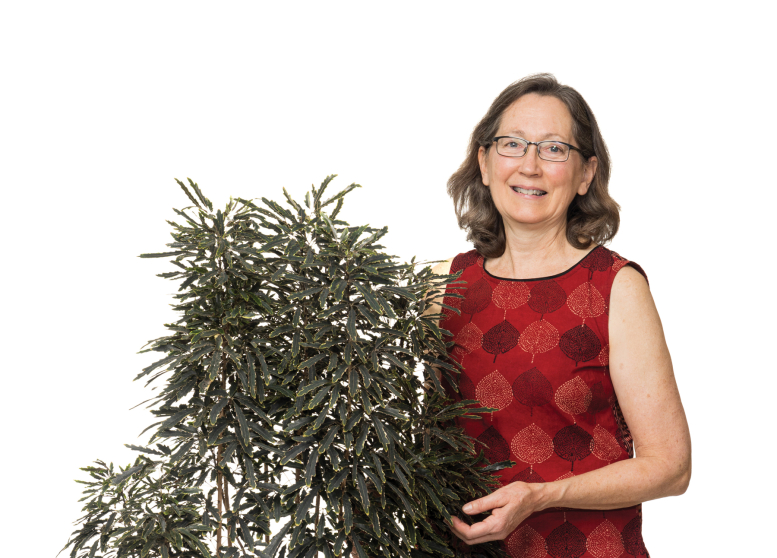What is your typical workday like?
It always starts with watering. And pests, primarily scale and mealy bugs, are always a problem, particularly in winter, when infestations tend to get hold and really take off. We have to be vigilant. I also order supplies or more plants. We’re always trying to diversify the collection.
What’s your favorite plant in the greenhouse?
My favorite is any plant that, when I come in in the morning, is showing an incredible bloom or number of blooms or growth or a plant that was struggling and is now showing us new growth.
What plants interest people the most?
“Morphy”—our Amorphophallus titanum, or corpse flower, a very stinky flower that typically blooms once every three to 10 years—is our biggest attraction. It’s not predictable. The smell is just awful, but it’s quite an attraction because it’s the largest unbranched inflorescence in the world. It can smell as if you put the biggest pile of dead mice with you in a closet.
What happens when plants die?
We compost everything. Sometimes a plant just gets too big for the greenhouse or may be declining, so we’ll take a cutting and start again.
Do you get many visitors?
Yes, especially in winter. Our international students find plants that remind them of home. Some people just want to come to a tropical space in the middle of winter. The greenhouse calms people down. One professor brings her classes at exam time as a stress reliever. People say it’s a real meditative experience to be in there with the plants.
What’s the worst thing about working at the greenhouse?
The bugs. We’ll never get down to zero, and that’s okay. It’s just the constant battle to not let them get the upper hand.
This article has been updated to correct Barry's quote about the corpse flower.




